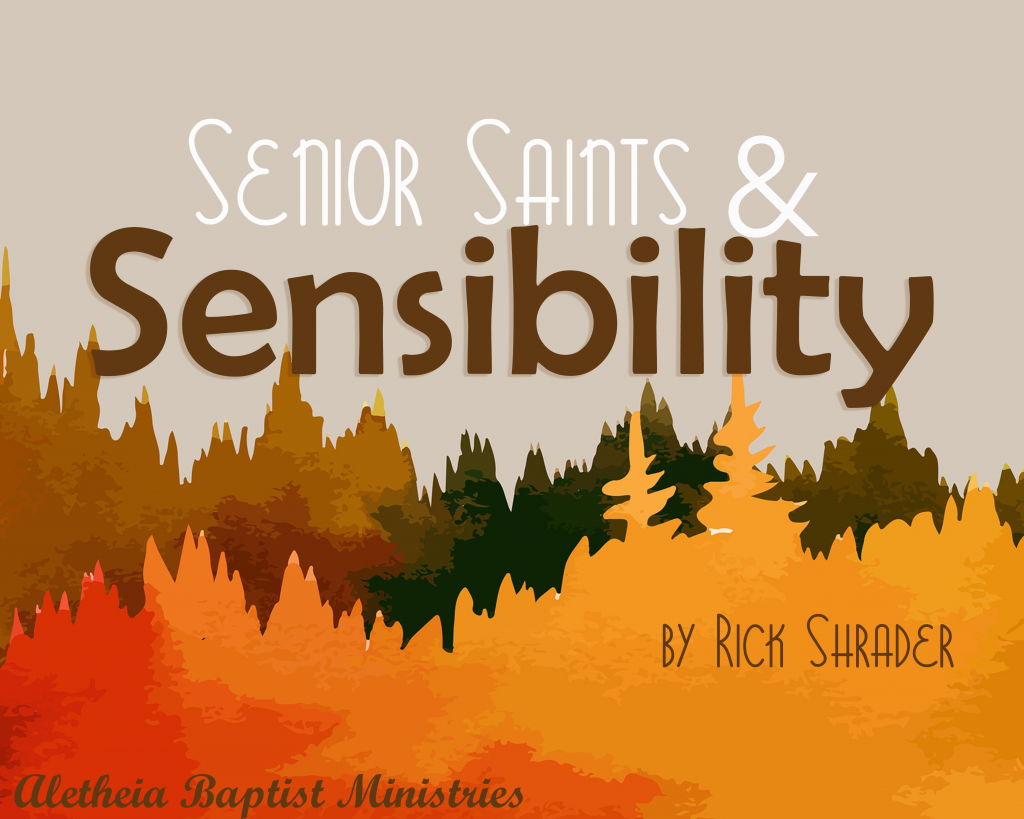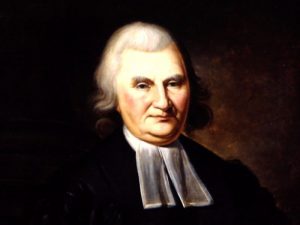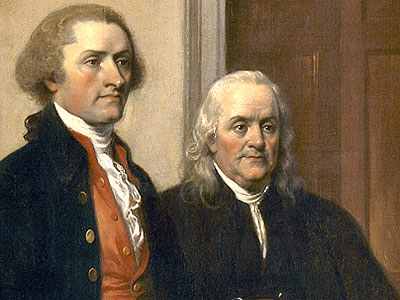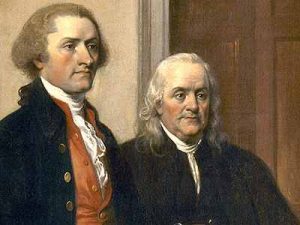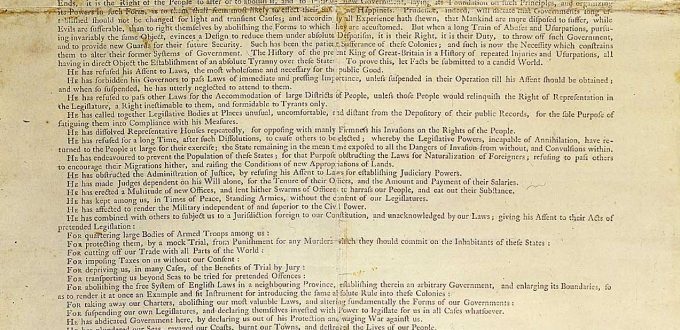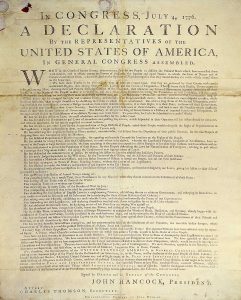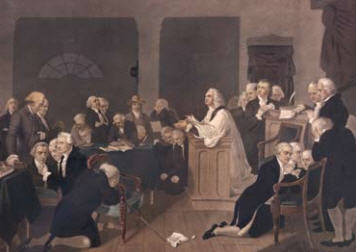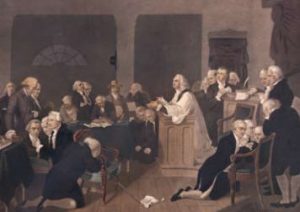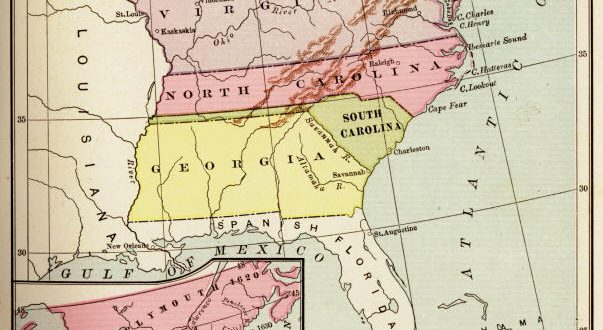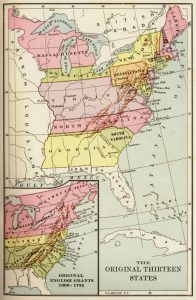The Resolution of the Continental Congress
by Debra Conley
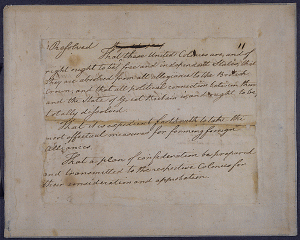
Ten years before the U.S. Constitution was formally written, the Continental Congress debated the fight they must take against England. In this resolution, we see that the colonies had come to a point of no return. Either we would fight to keep what we had built so far, forming a government of the people and crafting a document to stand the test of time, or we would capitulate to the former mode of servant colonies. They knew that without God’s help, looking to Him for guidance, they could fail. Every member signed this resolution which clearly acknowledges God as their primary source of strength:
“In times of impending calamity and distress; when the liberties of America are imminently endangered by the secret machinations and open assaults of an insidious and vindictive administration, it becomes the indispensable duty of these hitherto free and happy colonies, with true penitence of heart, and the most reverent devotion, publicly to acknowledge the over ruling providence of God; to confess and deplore our offences against Him; and to supplicate His interposition for averting the threatened danger, and prospering our strenuous efforts in the cause of freedom, virtue, and posterity.”
The Bible was clearly used as the model of self-control and individual responsibility by the founders. Anyone who has read the Federalist Papers knows that the conversations between James Madison, the primary writer of the Constitution, Alexander Hamilton, and John Jay became the finest explanation of the original intent of this great work. None of them intended it to be a fluid, changing document any more than the Bible was. Thomas Jefferson wrote, “On every construction, carry ourselves back to the time when the Constitution was adopted, recollect the spirit manifested in the debates, and instead of trying what meaning may be squeezed out of the text, or invented against it, conform to the probable one in which it was passed” (meaning the original idea).
Our prayer for America ought to be that we return to the tremendous biblically inspired foundation given to us.
